Contents
Some estimates say fifty-five million people worldwide are infected with intestinal parasites. Parasitic worms burrow into the muscles from the gastrointestinal tract where they live. Several worms, such as roundworms, whipworms, pinworms, hookworms, and tapeworms, can survive and live in the human intestines. The worms’ number, kind, and size determine the degree of infestation.
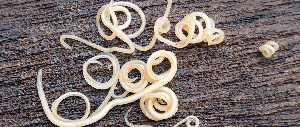
Intestinal parasitic worms tend to eat your food. This affects the amount of nutrients absorbed into the bloodstream, irritating the intestinal lining. The worms also generate tons of toxic waste harmful to the body. Causes of infestation include vegetation pollution by contaminated water, improper disposal of human and animal waste, walking barefoot on contaminated soil, and consuming poorly cooked or raw meat.
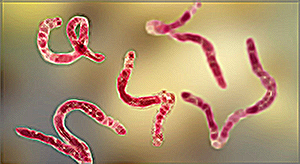
Worm eggs can be transferred to your fingers and anything touched because of anal scratching. In some instances, worm eggs are airborne and inhaled.
Roundworms: Most prevalent in children, the worms burrow through the intestinal wall and settle in various organs. These worms tend to come out of the anus at night because of the bed’s warmth. Therefore, parents can inspect their children while they sleep.
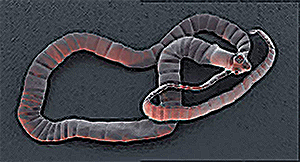
Hookworms: These worms are primarily found in southern sand and soil; they gain access by burrowing into the feet but can also gain access when consuming food with dirty, infested hands.
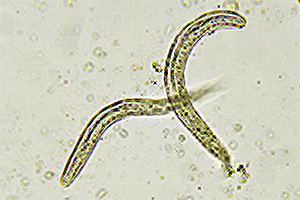
Tapeworms: These flatworms are acquired from consuming poorly cooked fish, pork, and beef. The common beef tapeworm can grow to twenty feet long in the human intestine.
Pinworms: These are tiny worms that cause anal itching at night. They are contracted by eating poorly or raw cooked vegetables that come into contact with contaminated water. Scratching the anal area can spread them on the fingers.
Unfortunately, a parasitic worm infestation can result in back and neck pain, cancer, sinus trouble, nausea, lupus, indigestion, headaches, diabetes, fatigue, colitis, and arthritis. Metronidazole is the drug of choice to treat intestinal parasites, which can cause severe side effects.
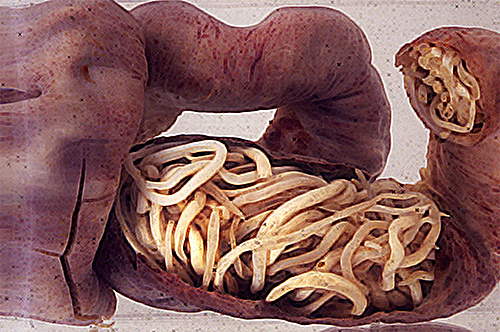
Symptoms
Appearance of worms in the toilet, teeth grinding, dry cough, picking at the nose, chronic fatigue, anal itching, irritable bowels, sleep disturbances, nervousness, anemia, weight loss, appetite loss, gas and bloating, constipation, diarrhea, and allergies. Also, parasitic worms can cause convulsions and spasms.
Natural Remedies for Worms
Aloe vera in all forms is very beneficial in eliminating worms.
The herbs mentioned here are excellent for expelling worms: black walnut, burdock, goldenseal, echinacea, cloves, wormwood seed, wormwood, and cascara sagrada. Avoid wormwood if you are pregnant.
Grapefruit seed extract assists in the elimination of parasites. Take chaparral or black walnut extract tablets or tea. Eat figs and pumpkin seeds. Fig juice is also helpful.
To get rid of worms, take diatomaceous earth capsules for three weeks. Many people tend to think they do not have parasites, but many do. When the worms eat this, they’ll disintegrate.
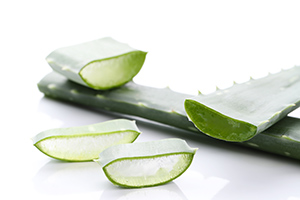
Drink 1 cup of wormwood tea 3 times a day between meals.
Enemas and colonics are fantastic ways to clean the colon. Try to have a procedure two times weekly for four weeks.
To remove pinworms, create a hot enema using three teaspoons of salt to a quart of water.
Cinchona bark tea, ½ teaspoons in one cup of boiling water for ten minutes, is bitter but very effective.
Elecampane is a herb that contains two anti-amoebic compounds. Add one teaspoon to one cup of boiling water, and simmer for twenty minutes; drink one to three cups daily.
People in Japan use ginger to expel worms. According to research, this is factual.
Indian folk healers use turmeric to get rid of worms, primarily nematodes. It has four anti-parasitic compounds.
Expelling Worms With Diet
Consume a high-fiber diet (mainly legumes, nuts, whole grains, and raw vegetables).
Until all parasites are removed, avoid all sugary foods, including fruits, except pineapples and figs.
Consume pumpkin seeds, figs, and black walnuts. Pumpkin seeds and their extracts aid in immobilizing and expulsing parasitic intestinal worms.
The kernel and green hull of black walnuts contain enormous amounts of tannin, which makes them excellent for expelling various worms. Native Americans and Asians used this remedy. External applications can kill ringworms, and the Chinese use it to eliminate tapeworms.
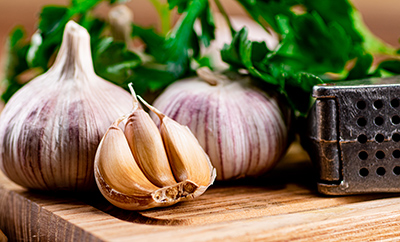
Consume carrots, cabbage, onions, and garlic. These foods possess natural sulfur, which aids in the expelling of worms. As one might expect, worms despise garlic.
Garlic can help eliminate giardia (an amoeba), pinworms, roundworms, and other parasitic ailments. Juice three cloves with four to six ounces of carrot juice and drink every three hours.
Drink plenty of water. Drink distilled water until the infestation is gone.
To eliminate pinworms, eat one to two bitter melons every day for seven to ten days. You can get them in Asian markets.
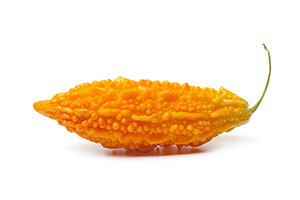
To get rid of tapeworms, fast for three days on raw pineapple. The bromelain in the pineapple destroys the worms.
Slice two raw onions and soak them in one pint of water for twelve hours. Then strain while squeezing out the juice. Drink a cup three times a day. Along with this drink, use garlic enemas.
Mix wormwood, tansy, and bitterroot and place them in capsules. Take two capsules four times a day.
Pomegranates are excellent dewormers of roundworms and tapeworms. Raw apples grated with anise seed sprinkled on a salad are believed to expel worms. After removing worms, yarrow is an excellent tonic to help heal the bowels. In addition, Cayenne has been used by Mexicans to eliminate worms. Fresh horseradish is helpful against some worms. In Brittain, they used tansy seeds with success. Consume dried thyme or thyme sprigs mixed in food.
Other vermifuge herbs include carline thistle, mugwort, tamarind leaves, quassia wood and bark, European pennyroyal, tarragon, and bilberry.
Prepare senna tea for children, strain it, and add enough raisins to soak it up. Give one teaspoon of this decoction two to five times a day. Incorporate garlic enemas and add a garlic clove up the rectum before bedtime.
Use a ½ cup of Epsom salts per one gallon of water, and take a warm bath. Before entering the tub, rub zinc oxide on the anus. Repeat for three days in a row.
Other Precautions
Consume nutritious foods rich in vitamins and minerals. Today, people need all of the nourishment they can get. Intestinal worms rob you of almost all. If your children have parasitic worms, ensure that they have proper nutrition.
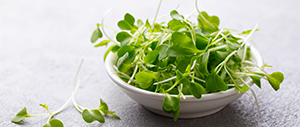
Avoid sugar, undercooked pork, beef, and fish, and avoid raw food, which can be contaminated.
Do not eat watercress. This plant grows in streams, many of which are contaminated and polluted. Pinworms and tapeworms infect watercress that is eaten raw as a salad.
Always wash your vegetables entirely before eating them raw.
Keep your home clean: Wash all sheets, bedclothes, and underclothing in hot water regularly. Clean all rooms regularly, primarily bedrooms. Apply some ammonia to a cloth and dampen it as a dust cloth. Sterilize toilet seats. The infected family member should sleep alone.
Everyone in the family must wash hands frequently, primarily after using the toilet, before meals, and before bed. They must also abstain from biting their fingernails.
DISCLAIMER: All content on this website is presented solely for educational and informational objectives. Do not rely on the information provided as a replacement for advice, diagnosis, or treatment from a qualified medical expert. If you are pregnant, nursing, or have any preexisting medical concerns, talk to your doctor before using any herbal or natural medicines.
REFERENCES
- Vance Ferrell Harold M. Cherne, M.D. The Natural Remedies Encyclopedia [Book]. – Altamont, TN: Harvestime Books, 2010. – Vol. Seventh Edition: 7: pp. 861, 862. [Natural remedies for worms]
- Study: Okeniyi, J. A., et al. (2007). Effectiveness of dried Carica papaya seeds against human intestinal parasitosis: a pilot study. Journal of Medicinal Food, 10(1), 194-196.
- https://pubmed.ncbi.nlm.nih.gov/17472665
- Information on Allicin: National Center for Complementary and Integrative Health. (n.d.). Garlic. https://www.nccih.nih.gov/health/garlic
- Fiber Benefits: Slavin, J. L. (2005). Dietary fiber and body weight. Nutrition, 21(3), 411-418.
- https://pubmed.ncbi.nlm.nih.gov/15797686
- Juglone Research: Tanaka, K., et al. (2005). Juglone, a naphthoquinone from Juglans mandshurica, induces apoptosis in human leukemia cell lines. Journal of Natural Products, 68(12), 1821-1825.
- Anti-Parasitic Studies: Ogunwande, I. A., et al. (2005). Antibacterial and antifungal activities of essential oils from Cymbopogon citratus Stapf. and Ocimum gratissimum L. leaves. Journal of Complementary and Integrative Medicine, 2(1), 1-8.
- https://pubmed.ncbi.nlm.nih.gov/17653185
